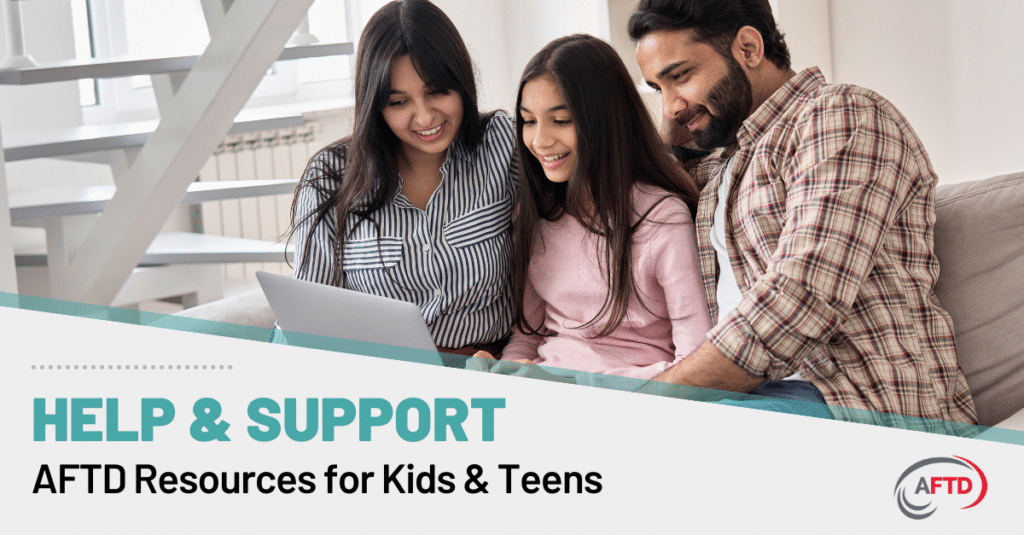Help & Support: AFTD Resources for Kids and Teens

Unlike other types of dementia, FTD most often occurs in middle age, when many families have children or teens at home. Families with young children and teens face unique challenges when a parent is diagnosed with FTD. After diagnosis, both parents may find it extremely difficult to explain the disease to their children, discuss how their lives will change, and offer them resources to help them cope, all while embarking on their own emotional FTD journey.
A village of support is necessary to ease the family’s adjustment to their new normal while maintaining the well-being of its individual members. To build that village, it may help to:
- Listen and tune in to what your children think and feel about the situation.
- Be open about the diagnosis with family, friends, neighbors, teachers, and other school administrators to gain support.
- Exercise self-care. Modeling good self-care is important for children.
- Encourage children to stay involved with school and social activities where appropriate.
- Identify a safe person each child can trust and talk to in addition to the non-diagnosed parent. This may be another family member, a member of the clergy, a counselor, or school personnel.
Talking about FTD with kids and teenagers can feel like navigating a minefield. Here are some tips to help ease those conversations:
- Communicate in a straightforward manner and at a level appropriate to your children’s age and development level.
- Watch your child’s reaction during the discussion and make adjustments accordingly. For example, if your child becomes confused or looks upset, slow down or back up and allow them space to say what is on their mind.
- Provide details if the child asks, but do not force children or teens to learn everything you know about the disease.
- Always tell your children the truth.
- Remember—it is always OK to say you don’t know.
- It is also OK to let children know you have feelings, too, and that being scared, sad, or mad is normal.
AFTD published a booklet for the express purpose of helping families facing this difficult situation. What About the Kids? addresses a multitude of issues, including how to talk to children in an age-appropriate way and how to build a network of support.
AFTD knows the importance of connecting with others who understand the FTD journey. Finding connection and support is vital—not only for children and teens but also for the parent shepherding their children through a loved one’s diagnosis and decline.
AFTD offers a national support group specifically for those with both a diagnosed spouse or partner and children or teens in the home. To join the group or get more information about resources for families, please contact our HelpLine at info@theaftd.org or 866-507-7222.
Additional Resources
By Category
Our Newsletters
Stay Informed
Sign up now and stay on top of the latest with our newsletter, event alerts, and more…
